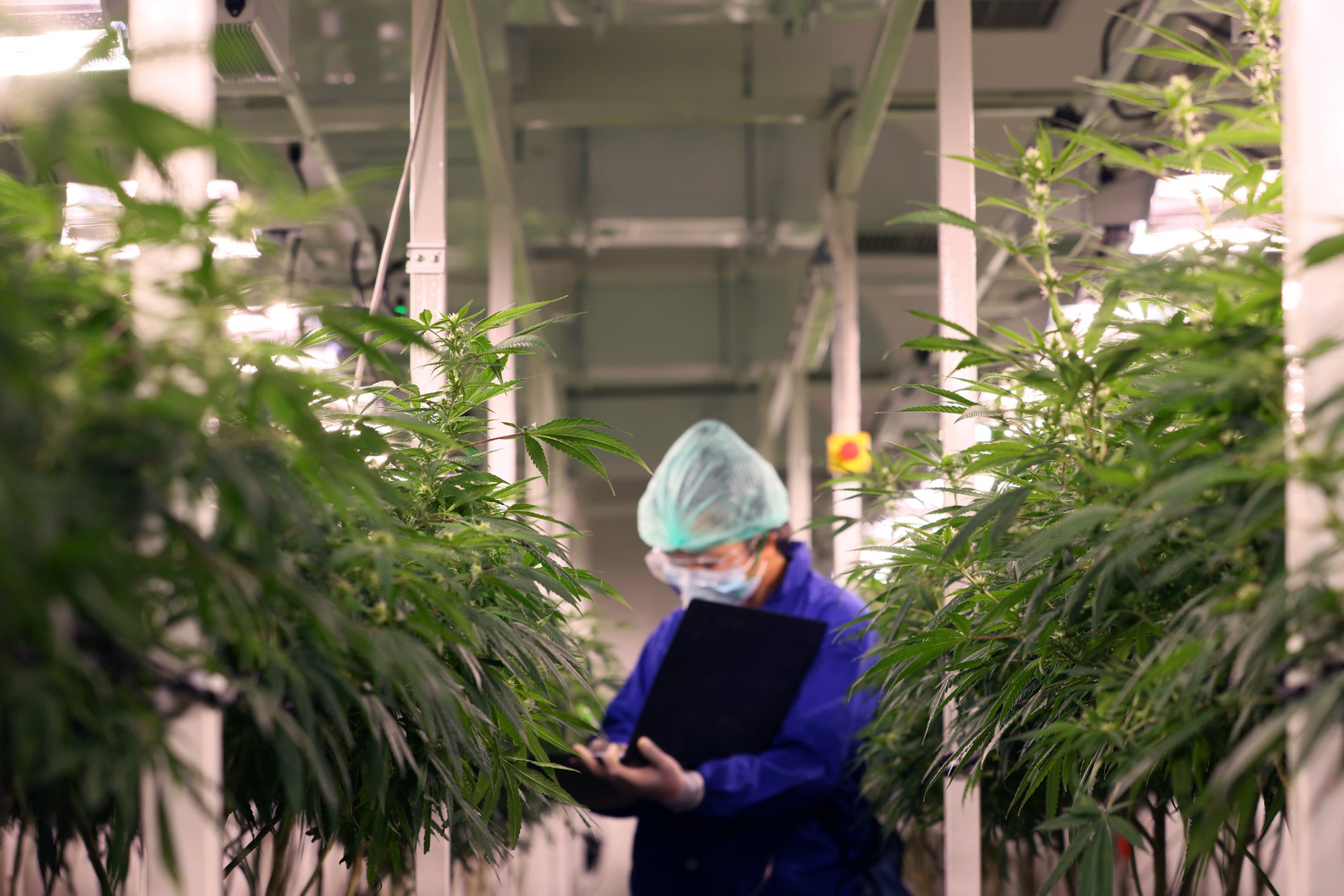Innovative Industrial Properties (IIPR +1.84%), a real estate investment trust (REIT) focused on the cannabis sector, reported strong second-quarter 2019 results last Wednesday, with its semiannual analyst conference call following on Thursday.
The San Diego-based REIT's revenue jumped 155% to $8.28 million, driven largely by acquisitions. Net income rocketed 155% to $3.07 million -- which translated to earnings per share (EPS) popping 76% to $0.30 -- and adjusted funds from operations (AFFO) leaped 90% to $0.59 per share. FFO is a key profitability metric for REITs, as it's the main driver of dividend changes.
Earnings releases tell only part of the story. Management's comments during earnings calls can often reveal key insights about a company's prospects and strategy. Here are four things you should know from Innovative Industrial's Q2 earnings call.

Image source: Getty Images.
Portfolio snapshot
For context, here's the snapshot that Executive Chairman Alan Gold provided of the company's portfolio as of Aug. 8:
As of today, we own 26 properties in 12 states, totaling over 2 million square feet, which are 100% leased on a long-term basis to high-quality licensed cannabis operators. Our current blended yield on these properties is 14.6% with a weighted-average remaining lease term of 15.5 years.
The states are New York, California, Massachusetts, Pennsylvania, Ohio, Michigan, Illinois, Maryland, Colorado, Arizona, Nevada, and Minnesota.
Pipeline of potential acquisitions "continues to increase"
From Gold's remarks:
[T]he pipeline has increased and continues to increase with some very exciting [opportunities]... So what we're seeing are more mature companies looking at our program and coming away very excited and very interested.
Gold went on to say that he believes there are three main reasons that the company's pipeline of potential acquisitions is expanding. First, the general type of program that it offers is "becoming more recognized as a way to raise capital." The program involves a company such as Innovative Industrial buying a cannabis cultivation and processing property from an owner-occupant and then leasing it back to the former owner. Second, the company itself is "becoming extremely well known within the industry." The third reason is that "the Canadian capital markets have slowed down somewhat," so some mature cannabis players are considering other sources of capital.
California cannabis market projected to be about as large as Canadian market in a few years
From CEO Paul Smithers' remarks:
California continues to have challenges and delays in its [adult-use] licensing program after numerous revisions to its rules, which has resulted in lower-than-anticipated regulated sales and ... a slower than anticipated move away from the deeply entrenched illicit cannabis marketplace. But the market opportunity for regulated cannabis remains tremendous, and it's [projected] to be about the size of Canada's entire market in a few years' time. [Emphasis mine.]
In November 2016, California voters approved the sale of cannabis for adult recreational use, with the state issuing the first licenses starting in January 2018. Innovative Industrial Properties entered the Golden State's cannabis market in the first quarter of this year. Since then, it's bought six more properties in the state -- a portfolio of five properties and then another single property -- bringing its California total to seven properties. Considering the company owns 26 total properties, that's a big number -- representing 27% of its portfolio's properties.
To put some numbers next to the projected size of the Golden State's cannabis market, the duo of Arcview Market Research and BDS Analytics expect this market to grow to $5.6 billion in 2022.
Company is open to cannabis retailing opportunities
From Gold's remarks:
[W]e are considering the retail opportunities. These are coming to us more likely as ... part of the ... cultivation package or in a portfolio package. So we're looking at these as they come across, but they do have different yields typically and different lease terms, so we look at each one individually, but we're open-minded to them.
Gold didn't elaborate, but I think it's probably safe to say that retailing facilities would sport lower profit yields than growing and processing properties. So, as long as the company's pipeline of properties within its core focus remains robust, it generally wouldn't make sense to dip into the retailer pool -- unless, of course, a retailing facility was part of a larger desirable portfolio. That said, it's good that management maintains an open mind, as it's always possible a good retailing-only opportunity could come its way.






